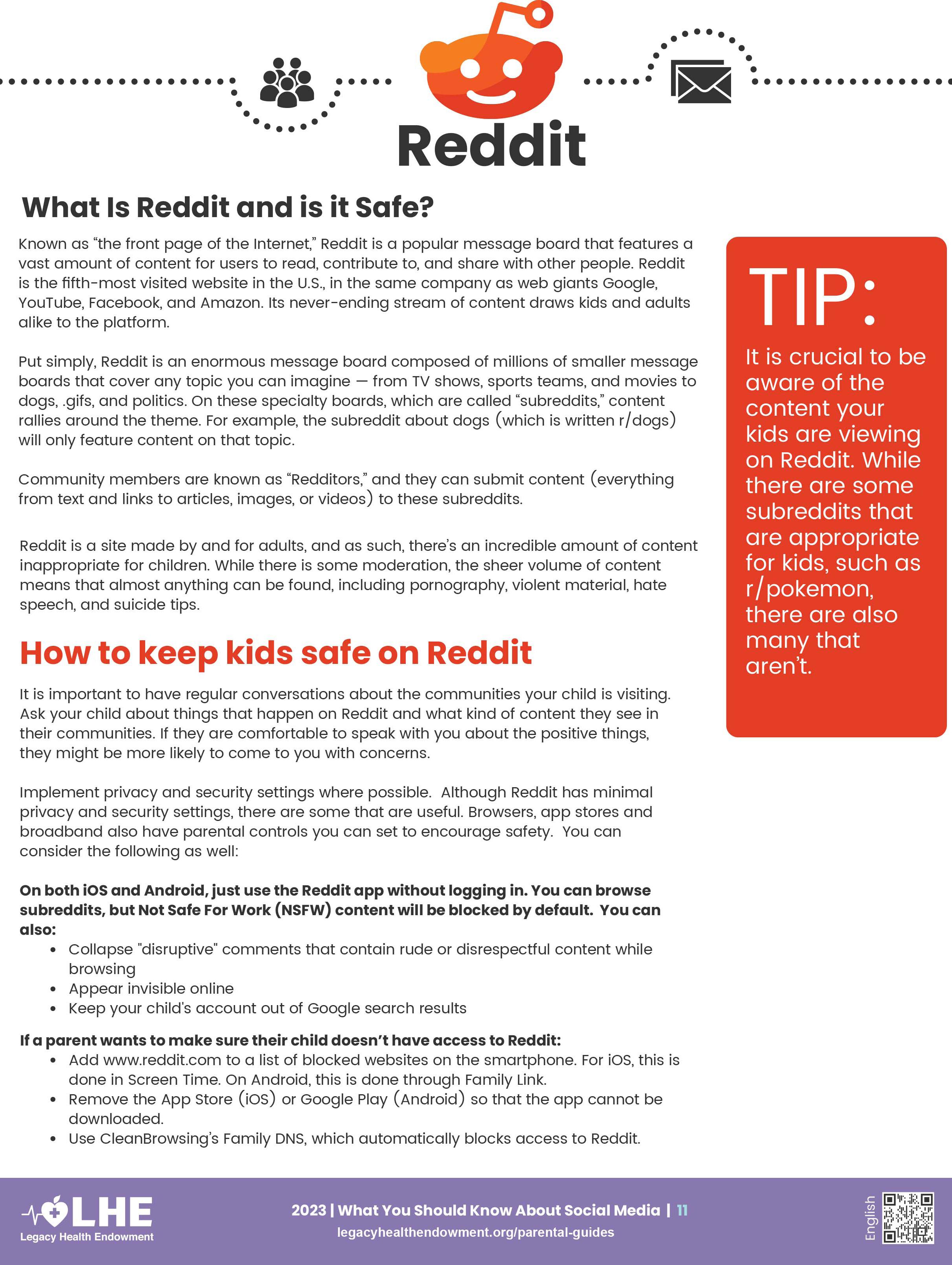A SOCIAL MEDIA SAFETY GUIDE
For Big Brothers and Sisters, Parents & Guardians



We created “What You Should Know About Social Media — The Potential Risks for Children and Teens” to help parents, grandparents, and guardians better understand the warnings of the most popular social media apps. This guide includes advice on what steps you can take to protect your children’s mental health.
There may be a correlation between the increased use of social media and poor behavioral health.
Children and teens who use social media are at a higher risk of depression, anxiety, low self-esteem, and even suicide. For some, social media has become the catalyst for their social anxiety disorder.


The problem is that social media apps can lure children in and become addictive. Behavioral health challenges may worsen with more time spent on social media. The behavioral health challenge facing children and teens is a growing public health crisis. We created our guide as a basic information tool to help you better understand the world of social media, how it can affect your child, and what this may mean to their mental health.
If you have questions or comments, please feel free to reach out.
Jeffrey Lewis, President and CEO Legacy Health Endowment jeffrey@legacyhealthendowment.org www.legacyhealthendowment.org
ChatGPT is a computer program that uses artificial intelligence (AI) to generate text. Launched by research company OpenAI, it gathers large amounts of data from the internet to create responses on demand. ChatGPT is unique because its answers are in conversational format, similar to how people write and speak. It can write essays and computer code, solve math problems, and much more.

To use ChatGPT, you first create a free account on the OpenAI website. Then you simply type questions or commands in the text box. Your requests can be as basic or elaborate as you can imagine. For example, you could ask it to write a story in the voice of your favorite movie character. Or ask it to give you a recipe based on the food you have at home. The tool allows you to continue to refine the answer by adding more instructions. ChatGPT saves a record of your conversations that you can view or continue at a later time.
To craft its responses, ChatGPT copies and remixes information from other places on the internet. It doesn’t tell you its sources or who created the original information. The tool is still being developed, so it can make mistakes, spread misinformation, and give inaccurate answers.
Many school districts are blocking ChatGPT on campus networks and school-issued devices. The concern is that students could use it to do their schoolwork for them, from writing papers to solving equations. They could also be turning in work with inaccurate information. Educators are worried the program could affect students’ learning if they rely on it. Check with your children’s school to see if and how they allow students to use ChatGPT.
OpenAI’s Terms of Use state that users must be 18 or older. However, it doesn’t ask users to verify their age when creating an account. Younger kids could easily access ChatGPT and come across content that’s not age-appropriate. In addition, ChatGPT collects personal information and user data. This info is used to improve the system and can be shared with third parties for things like advertising. Under the Children’s Online Privacy Protection Act (COPPA), collecting personal information from children under the age of 13 is illegal without parental consent.
If kids are interested in using ChatGPT, the best option is to use it alongside an adult. Kids could use ChatGPT with a parent or caregiver to get ideas about things they’re interested in, like writing code or music. Families can explore the tool together and try prompts that are fun, inspiring, or helpful. Ask it to write a play with parts for everyone, or put together a poem in Yoda’s style to read out loud. Since ChatGPT is a new program, there’s a lot we don’t know about it. As artificial intelligence tools become more available, it will be important for families to talk with kids about how to use them appropriately and responsibly.
If your children use or want to use ChatGPT, consider talking about these topics:
• Explain the importance of checking the credibility of a source before trusting the information, and point out that ChatGPT does not give sources for its information.
• Help them understand that plagiarism is when you take someone else’s work or ideas and present them as your own. Using ChatGPT to do your schoolwork could be considered plagiarism or cheating.
• Talk about how you might use ChatGPT as a family to be creative or get inspired. Have it create a list of outdoor activities for kids, or ask it to suggest a craft project to try.

• Mood swings
• Angry outbursts
• Bouts of sadness, depression or anxiety
• Loss of sleep/oversleeping
• Lack of appetite
• Withdrawal from family and friends
• Reluctance to go to school, falling grades
• “Losing” belongings (that are being stolen or broken)
• Unexplained bruises or scratches
• Sudden weight loss or gain, stomach pain
• Coming home hungry (despite being given lunch or money)















